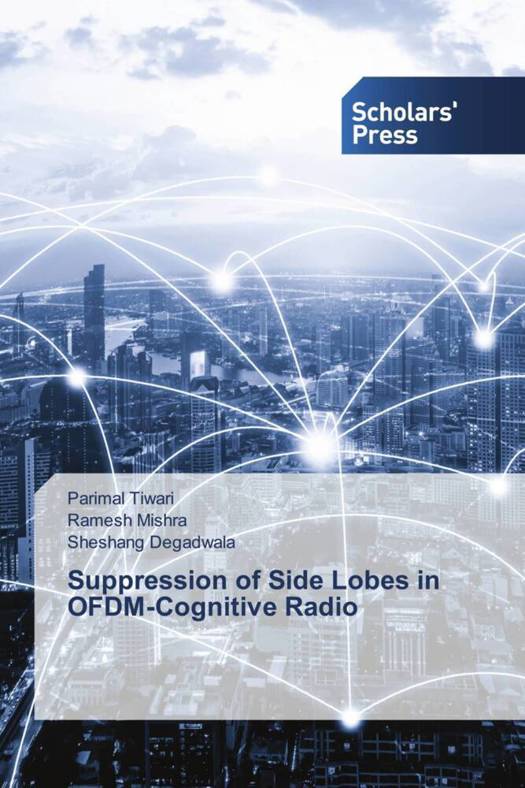
Bedankt voor het vertrouwen het afgelopen jaar! Om jou te bedanken bieden we GRATIS verzending (in België) aan op alles gedurende de hele maand januari.
- Afhalen na 1 uur in een winkel met voorraad
- In januari gratis thuislevering in België
- Ruim aanbod met 7 miljoen producten
Bedankt voor het vertrouwen het afgelopen jaar! Om jou te bedanken bieden we GRATIS verzending (in België) aan op alles gedurende de hele maand januari.
- Afhalen na 1 uur in een winkel met voorraad
- In januari gratis thuislevering in België
- Ruim aanbod met 7 miljoen producten
Suppression of Side Lobes in OFDM-Cognitive Radio
DE
Parimal Tiwari, Ramesh Mishra, Sheshang Degadwala
Paperback | Engels
€ 50,45
+ 100 punten
Omschrijving
As the demand for sophisticated wireless mobile applications incorporating efficient modulation techniques is ever increasing, the more spectral bandwidth is needed so that more number of applications could work. However, bandwidth is scarce in nature. Also, as the existing spectrum allocation policies of the Federal Communications Commission (FCC) allow spectrum access to licensed users only, it has been proven by various spectrum measurement campaigns that, the current licensed system uses its total spectrum inefficiently.Spectrum pooling is the concept which is based on dynamic spectrum access (DSA), wherein the secondary user decides whether the particular frequency band is currently being used and transmits the signal in that unused licensed band or not, while keeping in mind that the system performance of the primary as well as the secondary is not getting worst. Thus, coexistence of the primary and the secondary users is an important criterion that makes DSA a feasible solution for efficient spectrum usage.
Specificaties
Betrokkenen
- Auteur(s):
- Uitgeverij:
Inhoud
- Aantal bladzijden:
- 76
- Taal:
- Engels
Eigenschappen
- Productcode (EAN):
- 9783639667523
- Uitvoering:
- Paperback
- Afmetingen:
- 150 mm x 220 mm

Alleen bij Standaard Boekhandel
+ 100 punten op je klantenkaart van Standaard Boekhandel
Beoordelingen
We publiceren alleen reviews die voldoen aan de voorwaarden voor reviews. Bekijk onze voorwaarden voor reviews.









